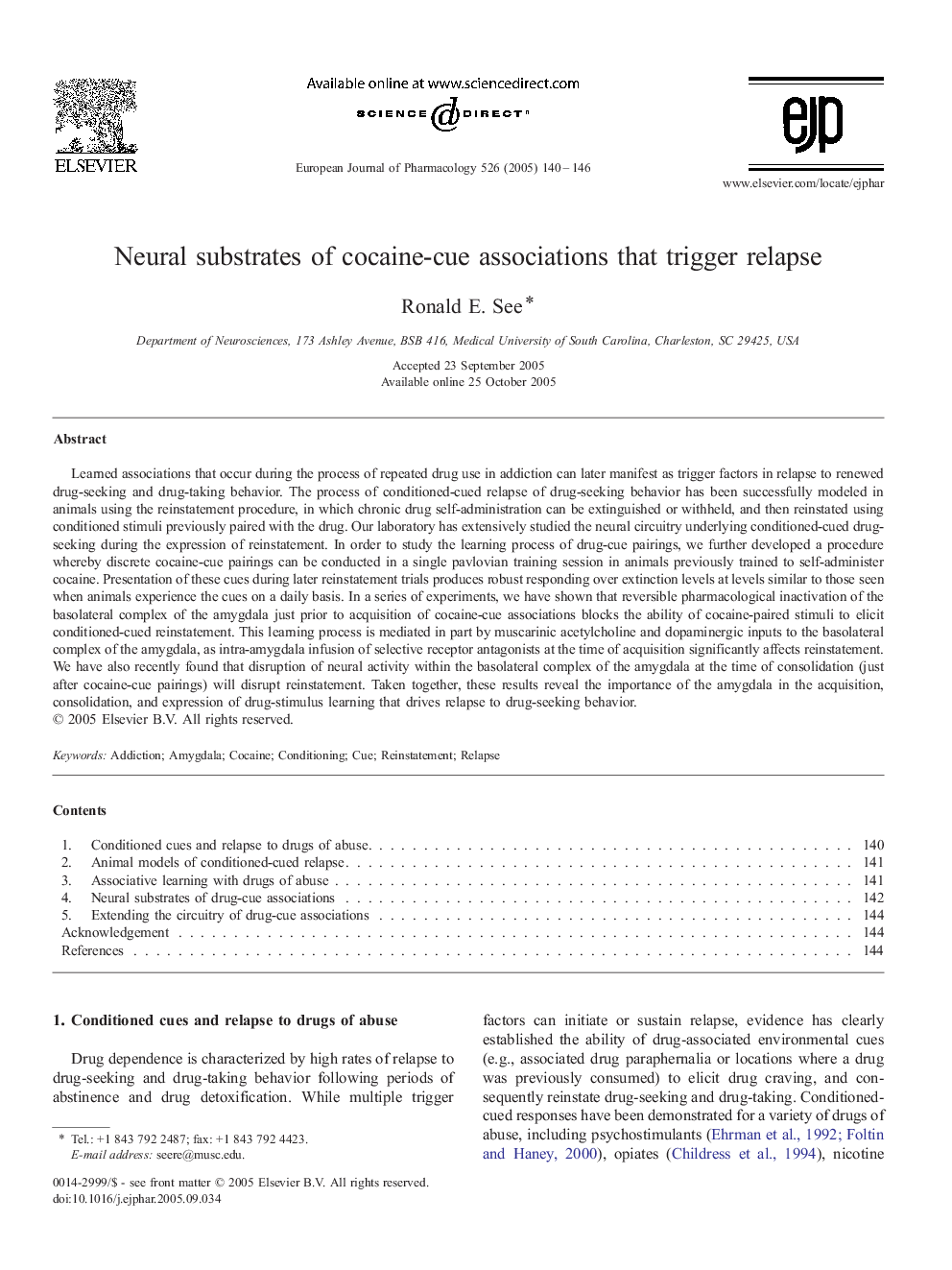| کد مقاله | کد نشریه | سال انتشار | مقاله انگلیسی | نسخه تمام متن |
|---|---|---|---|---|
| 9920963 | 1559196 | 2005 | 7 صفحه PDF | دانلود رایگان |
عنوان انگلیسی مقاله ISI
Neural substrates of cocaine-cue associations that trigger relapse
دانلود مقاله + سفارش ترجمه
دانلود مقاله ISI انگلیسی
رایگان برای ایرانیان
کلمات کلیدی
موضوعات مرتبط
علوم زیستی و بیوفناوری
علم عصب شناسی
علوم اعصاب سلولی و مولکولی
پیش نمایش صفحه اول مقاله

چکیده انگلیسی
Learned associations that occur during the process of repeated drug use in addiction can later manifest as trigger factors in relapse to renewed drug-seeking and drug-taking behavior. The process of conditioned-cued relapse of drug-seeking behavior has been successfully modeled in animals using the reinstatement procedure, in which chronic drug self-administration can be extinguished or withheld, and then reinstated using conditioned stimuli previously paired with the drug. Our laboratory has extensively studied the neural circuitry underlying conditioned-cued drug-seeking during the expression of reinstatement. In order to study the learning process of drug-cue pairings, we further developed a procedure whereby discrete cocaine-cue pairings can be conducted in a single pavlovian training session in animals previously trained to self-administer cocaine. Presentation of these cues during later reinstatement trials produces robust responding over extinction levels at levels similar to those seen when animals experience the cues on a daily basis. In a series of experiments, we have shown that reversible pharmacological inactivation of the basolateral complex of the amygdala just prior to acquisition of cocaine-cue associations blocks the ability of cocaine-paired stimuli to elicit conditioned-cued reinstatement. This learning process is mediated in part by muscarinic acetylcholine and dopaminergic inputs to the basolateral complex of the amygdala, as intra-amygdala infusion of selective receptor antagonists at the time of acquisition significantly affects reinstatement. We have also recently found that disruption of neural activity within the basolateral complex of the amygdala at the time of consolidation (just after cocaine-cue pairings) will disrupt reinstatement. Taken together, these results reveal the importance of the amygdala in the acquisition, consolidation, and expression of drug-stimulus learning that drives relapse to drug-seeking behavior.
ناشر
Database: Elsevier - ScienceDirect (ساینس دایرکت)
Journal: European Journal of Pharmacology - Volume 526, Issues 1â3, 5 December 2005, Pages 140-146
Journal: European Journal of Pharmacology - Volume 526, Issues 1â3, 5 December 2005, Pages 140-146
نویسندگان
Ronald E. See,